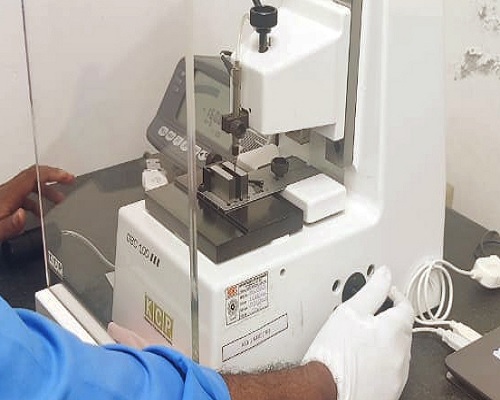Calibration Services in Chennai

We are a prestigious company in Chennai in the field of Calibration Services. For any questions contact us.
What are calibration services?
These services are a critical part of industrial and manufacturing maintenance — gauging equipment presentation against a consistent quantity and then fine-tuning the machine or device to assurance that it is operating to spec.
What Are the Benefits of Calibration Services?
Consistent accuracy and repeatability: At its core, calibration is inextricably tied to accuracy. Equipment is calibrated to help ensure that it operates accurately and as intended.
More efficient production or operation: In manufacturing, calibrated output equipment is better able to produce parts within spec, and calibrated quality assurance equipment means that parts are approved and shipped as intended.
Who Benefits from Calibration Services?
The list of industries, manufacturers and applications that can benefit from calibration services is vast. Essentially, any type of output or measurement equipment should be regularly calibrated to ensure optimal performance within an acceptable range.
Types of Calibration
- Pressure Calibration
- Temperature Calibration
- Flow Calibration
- Pipette Calibration
- Electrical calibration
- Mechanical calibration
Pressure Calibration
Pressure calibration is an important function across multiple industries where measurement equipment is used to monitor method performance and safety, usually measuring gas and hydraulic pressure.
A few examples of pressure instruments that are regularly calibrated are:
- Digital Pressure Gauges
- Digital Indicators
- Transducers
- Transmitters
Temperature Calibration
In all processes where temperature readings have a critical role, temperature calibration is conducted and is carried out in a controlled environment.
Flow Calibration
A flow meter is a test device used to measure the mass, linear, nonlinear, volumetric flow rate of a liquid or a gas. The flow rate refers to the speed at which a method fluid is moving through pipelines, jaws, or vessels at a given time, and control and instrumentation engineers need to measure this value in order to monitor and regulate the speed and efficiency of industrial flow methods and devices.
Pipette Calibration
For laboratories that frequently use this measuring instrument, pipette calibration is essential for accurate and precise pipetting results. All various kinds of pipettes that are being used in the laboratories: single-channel, multi-channel manual pipettes, and electronic pipettes need to follow several aspects of the calibration process and protocols.
Electrical calibration
Electrical calibration refers to the method of verifying the performance of any instrument that measures or tests electrical parameters such as voltage, current, resistance, inductance, capacitance, time, and frequency.
Mechanical calibration
Mechanical instruments are subject to drift due to regular usage, mechanical shock, and exposure to changing atmospheric conditions, as such mechanical calibration is needed. During mechanical calibration factors like mass, force, dimension, angle, volume, flatness, torque, and vibration are calibrated in a temperature-controlled facility.
Visit us in Google Maps



Leave a Reply
Want to join the discussion?Feel free to contribute!